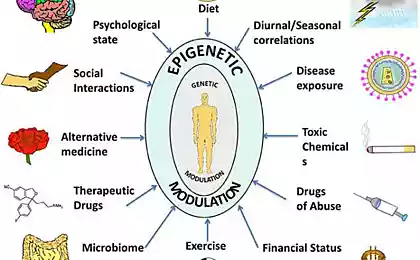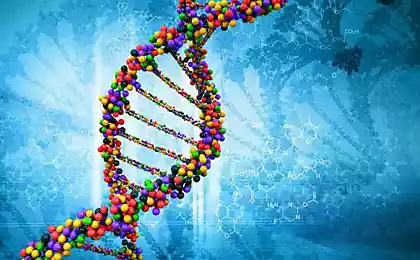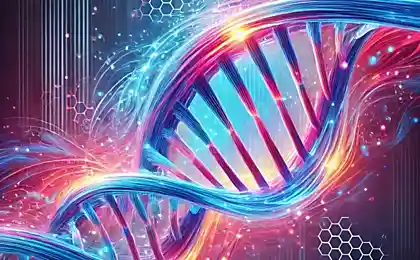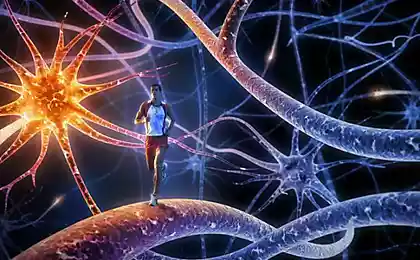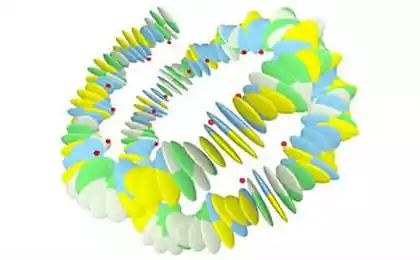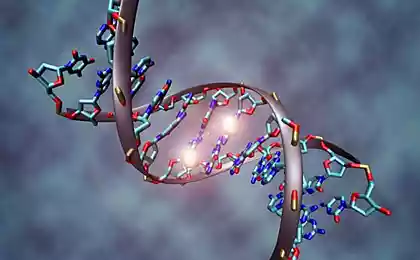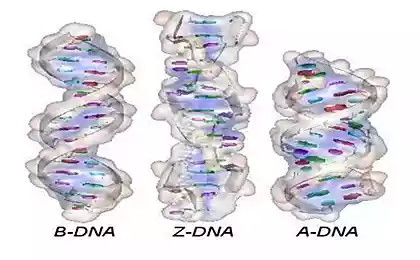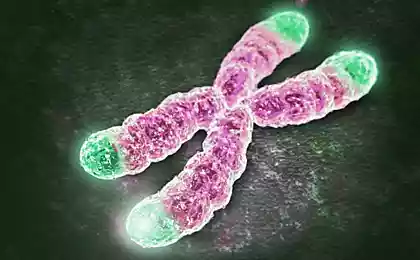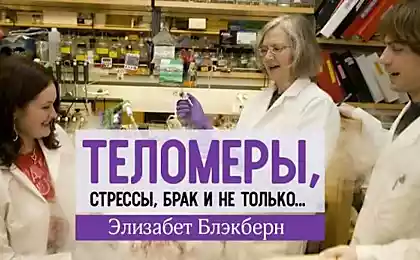333
The Secrets of Longevity: 5 Habits That Change DNA

Introduction. For a long time, people dreamed of finding the “elixir of immortality” and tried to unravel longevity. With the development of science and technology, this dream has ceased to be just a part of myths and legends. Modern research in the field of genetics, epigenetics and biomedical implants confirm that prolonging an active life is more than realistic, and not only due to “good” heredity. In this article, we will look at five habits that can literally affect DNA, and learn about the practical findings of scientists. Harvard University and FNCC of physical and chemical medicine (Federal Scientific and Clinical Center), engaged in fundamental research in the field of aging biology.
It will reveal the role of telomeres in our lives, why we need “epigenetic switches”, and why in the near future we will be able to preserve youth with the help of the help of a young person. implantwhich will affect the body at the cellular level. We invite you to plunge into the exciting world of longevity, where science and high technology merge to reveal new horizons of human capabilities.
Telomeres: watchtowers of cell youth
Every cell in our body contains chromosome Linear structures containing genes. At the ends of these chromosomes are “caps” called telomeres. With each cell division, the telomeres shrink slightly. When their length becomes critically small, the cell loses its ability to divide and actually “ages.”
What affects the rate of telomere shortening? According to Harvard researchers, “telomeric wear and tear” can be accelerated stressfulPoor nutrition, lack of sleep and other negative factors. The good news is that some habits, on the contrary, can slow down the process by keeping telomeres longer and prolonging the life cycle of cells. For example, regular exercise and a healthy diet help to keep telomeres in better condition, which means longer to maintain youth at the cellular level.
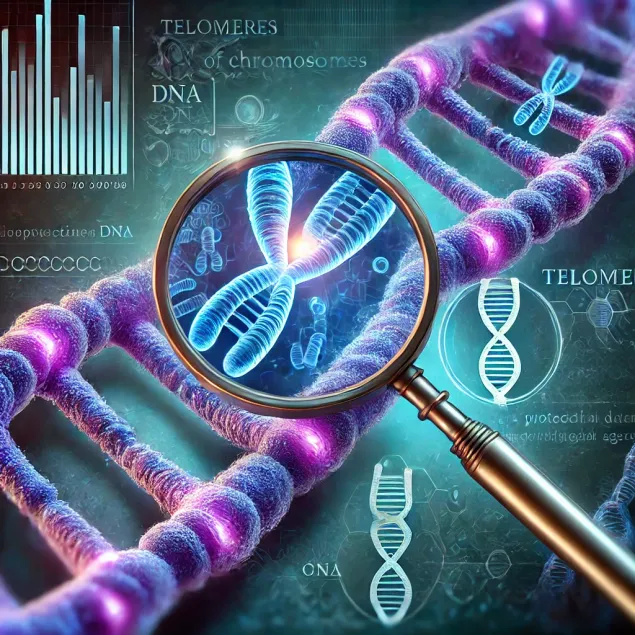
What do epigenetic studies say?
The word “epigenetics” is increasingly in the news about longevity. This discipline studies changes in the work of genes that do not affect the DNA sequence itself, but can turn on or off certain genes. According to Physics and Chemical Medicine, our epigenetic profiles They are dynamic: they respond to food, ecology, lifestyle and even our emotional state.
For example, complex studies indicate that meditation and conscious stress management practices can “turn off” genes associated with inflammatory processes, and, on the contrary, activate genes responsible for cell regeneration and protection. Thus, epigenetic switches are not fiction, but a real mechanism that allows a person to influence their genetic code.
Five Habits That Change Your DNA
- Regular traffic
Even moderate physical activity (walking, swimming, yoga) helps slow down telomere shortening. Harvard research shows that people who exercise 3-4 times a week have more stable scores of “telomeric health.” - Moderate nutrition and intermittent fasting
Calorie restriction and practices such as intermittent fasting (16:8) can activate longevity genes such as sirtuins. This reduces inflammation and improves metabolism. - Stress management
Chronic stress leads to accelerated loss of telomeric caps. Conscious practices (meditation, breathing exercises) and sleep quality (at least 7-8 hours) have a huge impact on epigenetics. - Social connections and altruism
Unusually, research by the FNCC and other scientific institutes confirms that people who are actively involved in social life and charity affairs have slower epigenetic changes associated with aging. - Biomonitoring and regular surveys
Modern medicine allows you to “read” the state of telomeres, inflammation levels and other markers of aging. This helps to adjust your lifestyle before negative changes become irreversible.

Biomedical Implants: The Coming Revolution?
When it comes to influencing DNA, we usually think about diet and lifestyle. But modern science goes further: biomedical implantsEpigenetics, which can interfere with epigenetic processes at the cell level, can give a real breakthrough in the fight against aging.
What is technology? The implant, which contains nanosensors and a system for releasing active substances, is implanted into the body and monitors the level of key biomarkers – for example, indicators of inflammation or hormonal failures. When “dangerous” signals are detected, the device can pinpoint inflammatory genes or, conversely, stimulate the cells’ defense mechanisms using microdoses of drugs.
At Harvard Medical School, research is underway to create “smart” chips that can prolong the life cycle of cells while maintaining the integrity of telomeres. And FNCC of physical and chemical medicine They are developing nanoparticles that, when targeted, are able to repair damaged sections of DNA. This is reminiscent of a sci-fi movie scenario, but experts say that we may see the first commercial versions of such solutions in the coming decades.
Infographics: How our habits affect DNA
Below is a schematic description of the effects of daily routines on major markers of longevity. (In real life, you can add visual infographics.)
- 1. Physical activity: Accelerates telomerase metabolism by keeping telomeres longer
- 2. Healthy sleep: Reduces cortisol levels by reducing telomeric stress
- 3. Antioxidants in nutrition: Reduce DNA damage and epigenetic disruptions
- 4. Emotional management: Prevents excess inflammation, promotes epigenome stability
- 5. Technological support (implants): Controls signaling pathways and corrects cellular defects
Conclusion: longevity – synthesis of habits and high technologies
The secrets of longevity have ceased to be “hidden” and have become the subject of serious scientific research. Telomeres, epigenetic factors and biomedical implants are the three whales on which a new concept of active and long-lasting existence is built. The five habits described in this article are just a basic foundation for those who want to live longer and better lives. And ahead is the era of high-tech devices that can automatically maintain the body in optimal condition, working at the DNA level.
However, there is no substitute for a conscious attitude to your health. Invest in your future now: relax, love movement, include natural foods in your diet and keep your stress levels under control. Scientific progress will give you more tools, but the most important first steps are up to you.
Glossary
telomeres
The window sections of chromosomes that perform a protective function. They are shortened by cell division, determining their life expectancy.
epigenetics
A field of biology that studies changes in gene expression unrelated to changes in DNA sequence.
sirtuins
A family of proteins related to the regulation of cellular survival and aging processes. Activated by a low-calorie diet and some types of stress.
Biomedical implants
Devices implanted into the human body to monitor and correct physiological processes, including at the genetic level.
Nanosensors
Ultra-small devices capable of measuring biochemical parameters in cells and tissues, transmitting information to electronic systems.
The Psychology of Poverty and Wealth: Neurons vs. Social Patterns
How Neural Networks Predict Disease: Medical Breakthrough 2025
